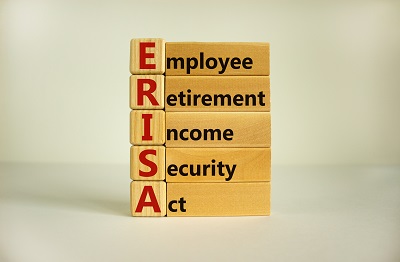Texas TX CLE | Choose Your Plan | Search for a Course

TX CLE (MCLE) Requirements
Attorneys in Texas must complete Continuing Legal Education (CLE) requirements set by the Texas State Bar to maintain their licenses, typically including a minimum of 15 hours of accredited CLE each year, with at least 3 hours in legal ethics or professional responsibility.
While these requirements are specific to Texas, attorneys who practice in multiple jurisdictions—such as those also admitted in California (CA CLE)—must ensure they meet the distinct CLE standards of each state. READ FULL ARTICLE | VISIT THE TEXAS BAR
How to Obtain CLE for a Knowledge Group Course in Texas:
To earn CLE credit with The Knowledge Group, complete the video courses, answer the secret word questions, and download your Certificate of Attendance.
Attendance Reporting Procedure:
Texas attorneys retain their Certificates of Attendance(s) and self-report their attendance and CLE compliance to the Texas MCLE Board. Additional Resources: The Knowledge Group Comprehensive CLE Rules Page or contact CLE support.
Texas CLE | Search for Single Courses
R&D Strategies | Live CPE Tax, Accounting & Finance Webinar
Innovating for Impact: R&D Strategies, Policies, and Technologies | Live CPE Tax,...
ERISA Litigation | Live CLE ERISA Webinar
From Compliance to Courtroom: ERISA Litigation Insights | Live CLE ERISA Webinar...
12 Minds, 1 Verdict | Live CLE Litigation Webinar
12 Minds, One Verdict: The Art of Winning Jurors Before the Case...
Trial Ready – Part 3: Trial Execution | On-Demand CLE Civil Trial Preparation Webinar
Ayanna Y. Countee Of Counsel | Hoagland, Longo, Moran, Dunst & Doukas...
Trial Ready – Part 2: Depositions | On-Demand CLE Civil Trial Preparation Webinar
Ayanna Y. Countee Of Counsel | Hoagland, Longo, Moran, Dunst & Doukas...
High-Conflict Custody | Live CLE Family Law Webinar
Gary L. Borger, Esquire Partner | Weir LLP Paxton D. Endres Associate...
Effective Litigation Strategies | Live CLE Class Action Webinar
Gerald L. Maatman, Jr. Partner | Chair, Class Action Defense Group Effective...
Trial Ready – Part 1: Case Strategy | On-Demand CLE Civil Trial Preparation Webinar
Ayanna Y. Countee Of Counsel | Hoagland, Longo, Moran, Dunst & Doukas...
Crypto Asset Recovery | Live CLE Cryptocurrency Webinar
Erin Sowden General Counsel | Unciphered Ash Kalb Advisor | Unciphered Legal...
Understanding TX CLE Requirements for Attorneys
Continuing Legal Education (CLE) is a crucial component of maintaining an active law license in nearly every U.S. jurisdiction. For attorneys practicing in Texas, TX CLE requirements help ensure that legal professionals remain knowledgeable about current laws, ethical obligations, and practical skills needed to serve their clients effectively. By keeping up with TX CLE requirements, attorneys can stay compliant with state regulations while enhancing their expertise and credibility.
The State Bar of Texas mandates that each active attorney must complete a set number of CLE hours annually. Specifically, the rules require attorneys to complete 15 hours of accredited CLE each compliance year, with at least 3 hours dedicated to legal ethics or professional responsibility. The compliance year generally runs from the first day of the attorney’s birth month to the last day of the month before the next birthday. Understanding these deadlines and requirements is essential for avoiding late fees or compliance penalties related to TX CLE.
One of the most valuable aspects of TX CLE is its flexibility. Attorneys can fulfill their hours through a variety of formats, including live in-person seminars, virtual webinars, recorded on-demand courses, and approved self-study. This flexibility allows busy legal professionals to balance work demands while meeting their educational obligations. For example, an attorney who often travels can rely on online TX CLE programs that are accessible anytime and anywhere. These formats are particularly beneficial for solo practitioners or small-firm lawyers who may find it challenging to attend traditional, in-person classes.
Ethics education remains a cornerstone of TX CLE. The 3-hour ethics requirement ensures that lawyers are consistently reminded of their professional duties and the standards of conduct expected by the legal profession. Topics commonly covered in ethics CLE courses include client confidentiality, conflict of interest, trust account management, and compliance with procedural rules. By prioritizing ethics in TX CLE programming, the Texas Bar reinforces its commitment to maintaining public trust and upholding the highest standards of professional behavior.
Another important consideration is the wide array of subject matter available through TX CLE programs. Beyond ethics, attorneys can select courses in practice areas such as corporate law, family law, criminal defense, environmental law, or emerging legal issues like data privacy and cybersecurity. This variety allows attorneys to tailor their education to their practice needs and professional goals. For example, a litigator might focus on trial advocacy workshops, while an estate-planning lawyer may choose courses that dive into tax implications and probate updates. The ability to customize TX CLE hours to align with an attorney’s career path makes the program more relevant and engaging.
Multi-jurisdictional practitioners, such as attorneys licensed in both Texas and California, often appreciate courses that qualify for credit in more than one state. Many continuing education providers now offer programs that meet both TX CLE and CA CLE standards. This approach allows attorneys to efficiently manage their compliance in multiple jurisdictions, avoiding the duplication of time and effort. For these lawyers, identifying providers with dual accreditation is a practical way to streamline their educational commitments.
To remain in good standing with the Texas Bar, attorneys must also keep accurate records of their TX CLE activities. The bar typically receives attendance reports directly from approved CLE providers, but attorneys should maintain their own documentation as a backup. Failing to meet the annual requirements can lead to administrative fees, penalties, or even suspension from active practice until compliance is achieved. Therefore, regular tracking and timely completion of TX CLE hours are essential for maintaining uninterrupted licensure.
The benefits of TX CLE extend beyond mere compliance. By participating in ongoing education, lawyers keep their skills current, gain insights into new legal trends, and strengthen their ability to advocate effectively for their clients. In an era of rapidly evolving regulations and technological change, continuous learning through TX CLE helps attorneys stay competitive in the marketplace and responsive to client needs.
Ultimately, TX CLE is more than a regulatory obligation; it is an investment in professional growth and service quality. By staying informed about changes in the law, honing practical skills, and reaffirming ethical responsibilities, attorneys not only safeguard their careers but also contribute to the integrity of the legal system as a whole. Whether accessed in-person or online, TX CLE programs provide the tools and knowledge lawyers need to navigate complex legal landscapes and deliver the highest standard of representation












